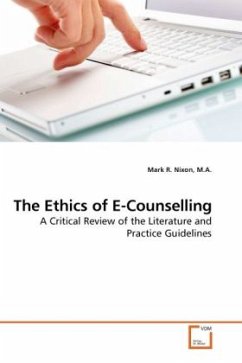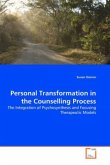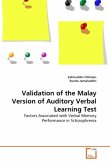E-counselling is the practice of counselling using computer-mediated communications such as e-mail, instant messaging, and audio-video conferencing. The field emerged in the 1990s and has since been vigorously debated among practitioners. E-counselling involves a radical departure from face-to-face counselling in that it takes place without the client and counsellor in the same physical space, often at different times, and in the absence of many sensory cues. Consequently, it has been unclear how to best protect client well-being online and uphold such basic ethical obligations as confidentiality and informed consent. This book reviews recent scholarly literature in an attempt to identify these ethical practice issues. Recently developed professional guidelines are also reviewed to assess to what extent they address the ethical challenges identified in the literature. Ethical knowledge gaps are revealed and discussed such as issues of power, social justice, and supervision online. This critical analysis helps clarify unforeseen ethical risks arising in e-counselling and should be especially useful to agencies and mental health professionals planning to extend their services online.








